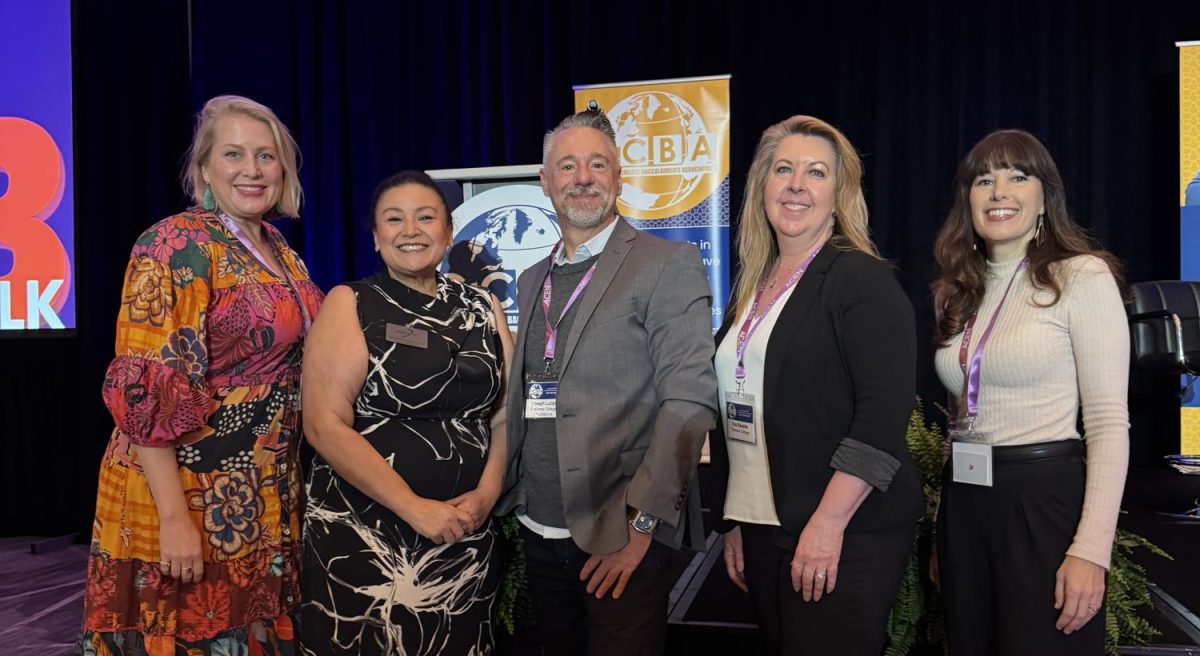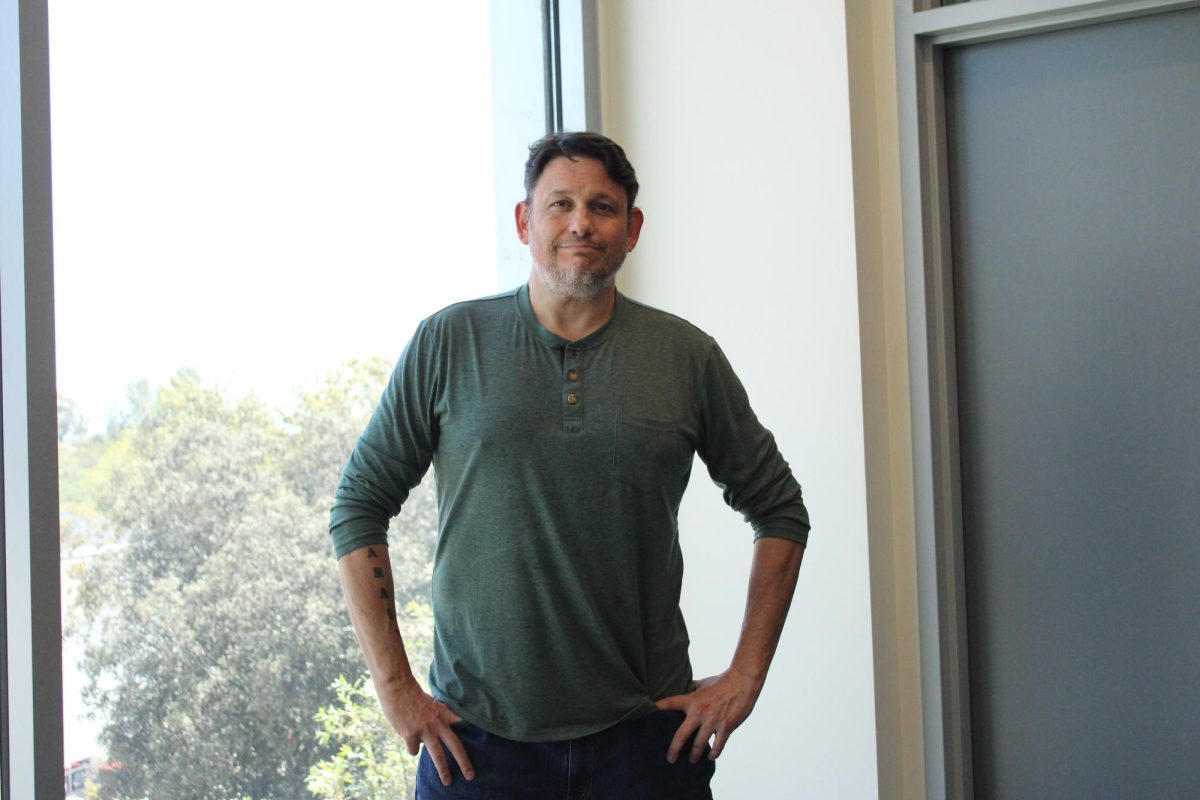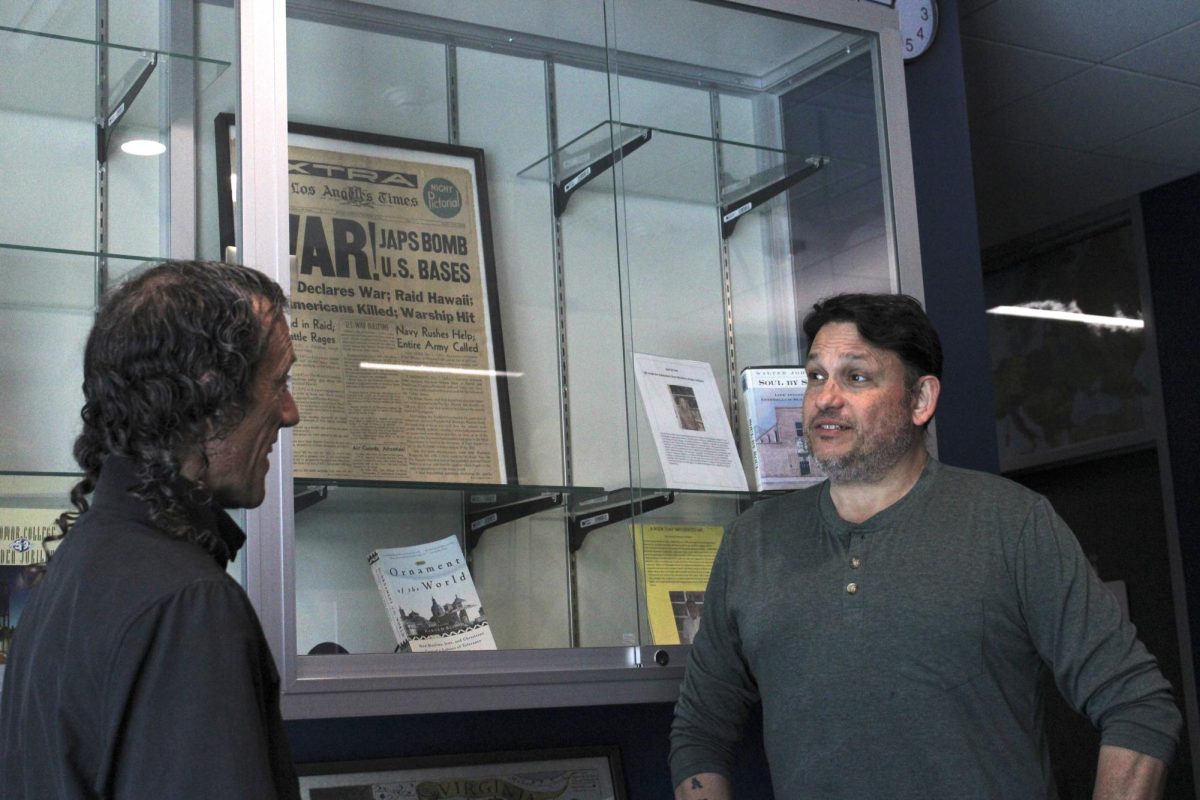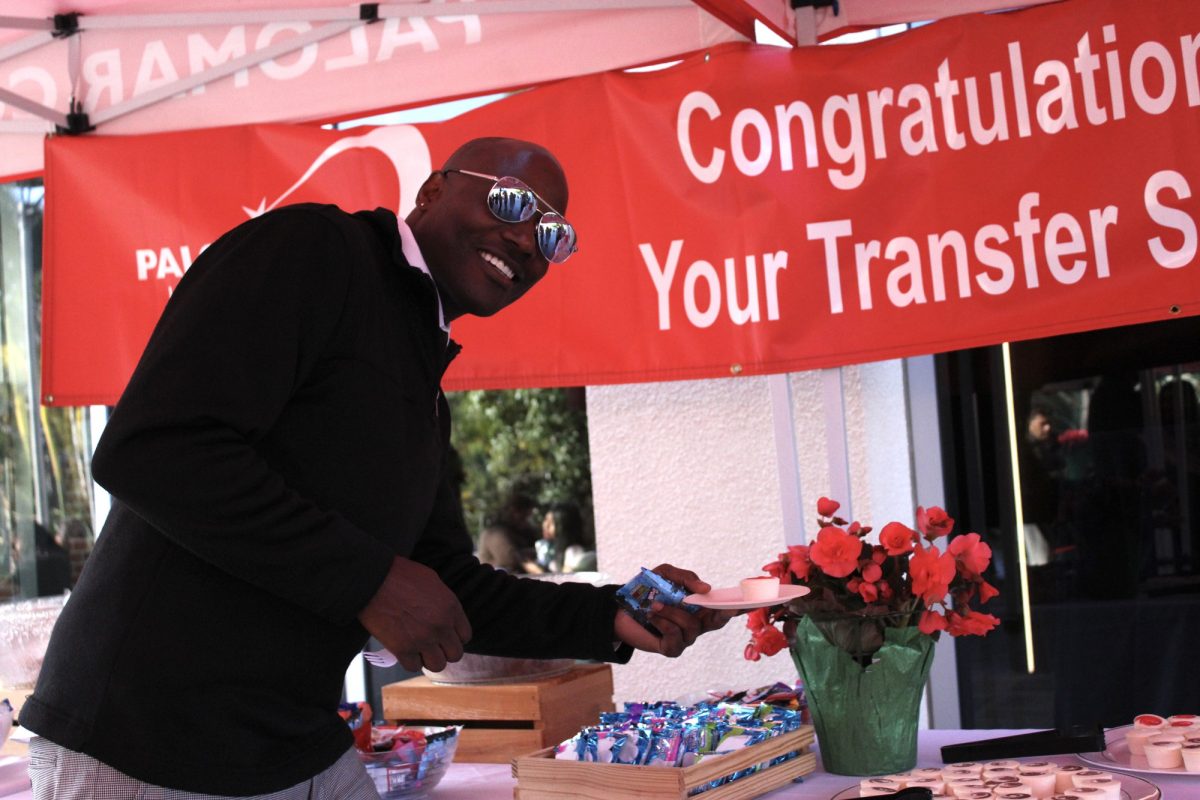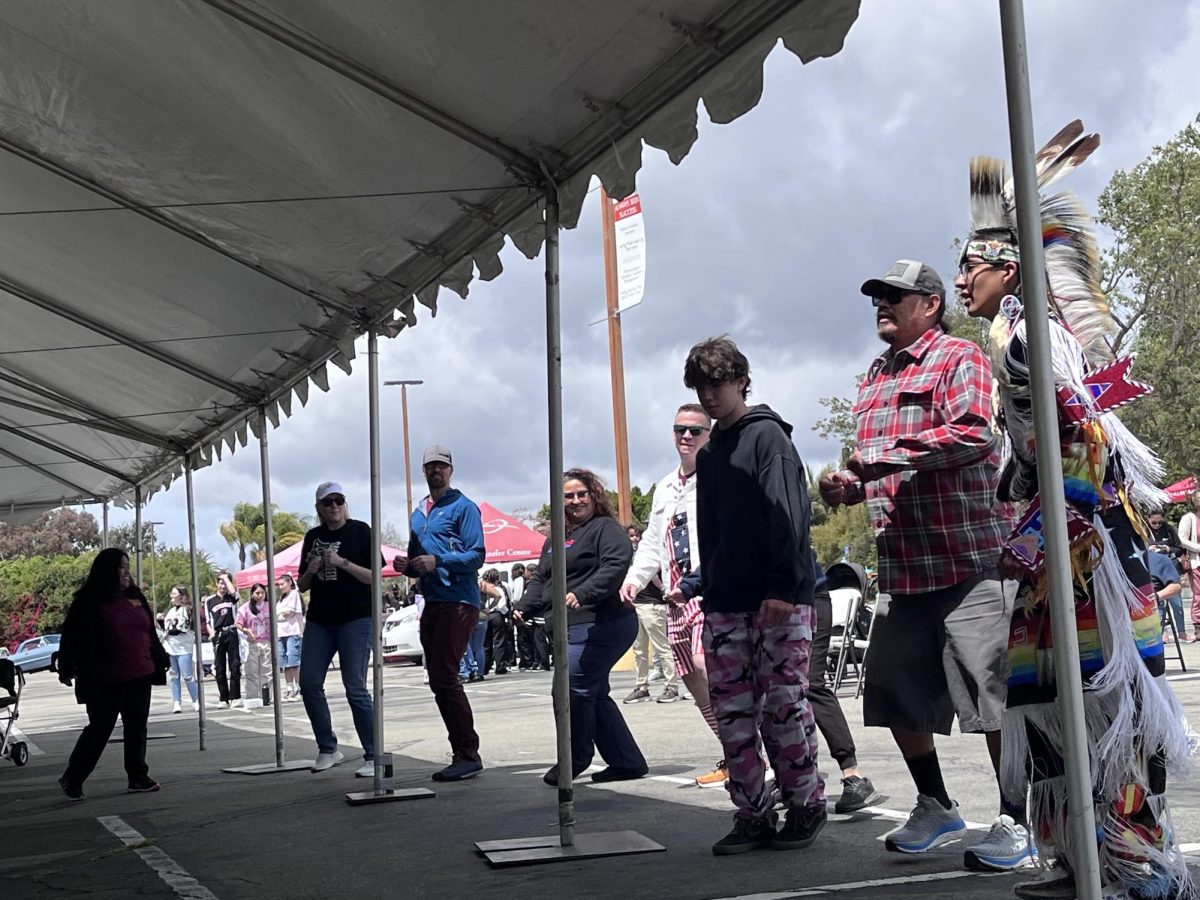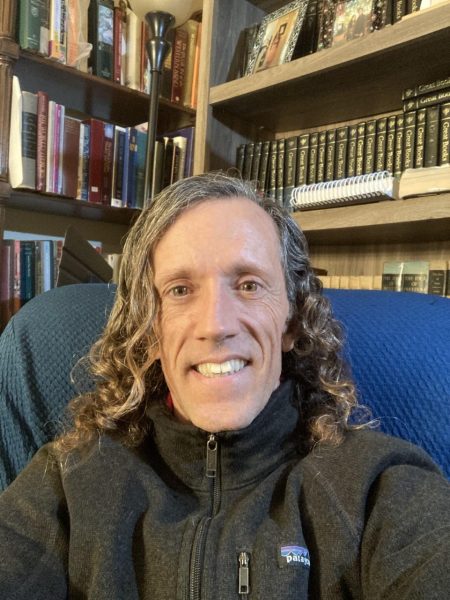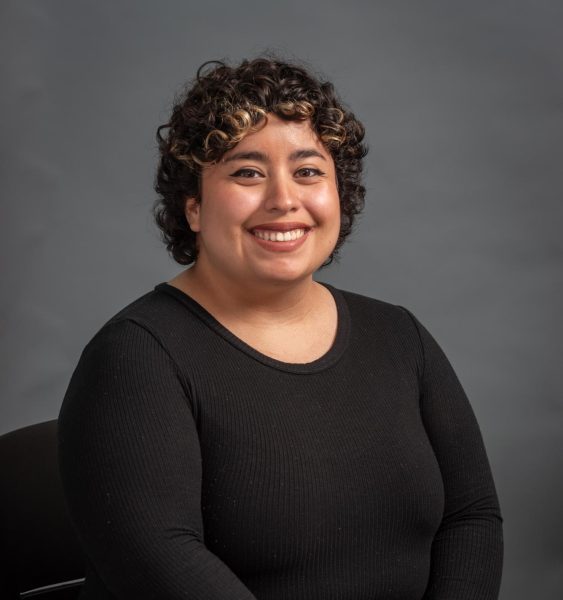Freedom of speech on college campuses is in jeopardy, according to Palomar political science professor Peter Bowman. He speculates on this subject and, more specifically, on what kinds of activities could soon be “illegal” on college campuses. As Bowman explains, companies and educational institutions could, through preemptive compliance, facilitate the consolidation of power by the executive branch in a way that threatens freedom of speech on college campuses and beyond.
In this last article in this series, Bowman discussed how the executive branch has already gone a long way towards consolidating power as the Department of Government Efficiency seeks to restructure the U.S. government. The American political system and constitutional order are close to becoming compromised, according to Bowman, who described the fate of America as uncertain.
Peter Bowman has worked as a political science professor at Palomar for 21 years, and he’s taught as a community college professor for a total of 29 years. While in graduate school, he specialized in international relations theory and the Middle East. At Palomar, his classes focus on American politics on a local and national level, international relations, and political theory.
Bowman explains how studying political science can help with defending democracy. According to Bowman, a knowledge of political science can help students become familiar with the foundations of liberal education. This knowledge will also help students understand the nuance in history, an understanding, Bowman says, is needed now more than ever.
The Telescope: Is Trump’s administration posing a threat to freedom of speech?
Bowman: Yes. Just recently he issued a proclamation, maybe in the form of a more formal executive order, but certainly issued the proclamation on Truth Social that any universities that allow illegal activities — which is to say protests, maybe pro-Palestinian protests, pro-DEI protests, pro-immigration protests, protests that are generally opposed to Trump and his policies — might be considered illegal activity.
Granted, during the spring of 2024, when you have unrest on college campuses regarding the war in Gaza, there were some students that did things that were illegal — commandeering administration buildings, administration offices, and what have you. And so, I would imagine that any Trump apology or any Trump [Department of Justice] lawyer that would get these arguments in future court cases would say that’s what the administration is referring to as illegal activities.
But essentially, when Trump is saying that international students who protest on behalf of the Palestinians, who protest on behalf of any issue opposed to Trump, can be deported [and] American students can be expelled, that right there could be a violation of the First Amendment.
I do understand the counterargument that says, “Well, it’s one thing to protest, to criticize, to protest on behalf of Palestinians. It’s another thing to protest in favor of Hamas or other terror groups that have committed horrible acts against Israeli citizens, and who are anti-Semitic.” So, it’s targeting anti-Semitism and pro-Hamas. They are a horrific organization, and anti-Semitism is awful.
But the Supreme Court has ruled this in Brandenburg v. Ohio, 56 years ago: that even the most horrific speech — even the most inflammatory speech — whether it be supporting left-wing terrorists or supporting white supremacists in the KKK, political speech must be protected. So long as it’s peaceful, it must be protected.
So basically, these Trump executive orders and proclamations that threaten federal funding from schools that allow these protests to happen, or executive orders that target the deportation of international students who protest on behalf of the Palestinians, that is a violation of the First Amendment, in my view.
Also, the Trump administration is indirectly trying to put a chilling effect on media companies by threatening to have his DOJ launch investigations. The idea is to put a chilling effect on these companies and basically minimize or eliminate negative media coverage against the Trump administration with threats of investigation.
And so, what the comparative politics literature has often said is that this is one of the tactics authoritarian strongmen: getting private companies to preemptive cooperate. When the regime sends out an implicit signal that failure to cooperate with the administration could result in investigation — or tirades, like the President’s rants on Truth social — it pressures companies and media organizations to kneel to the President in advance.
It was very telling that days before the election, the Washington Post editorial board was set to endorse Kamala Harris and at the virtual last minute, Jeff Bezos, the publisher of the Post, the head of Amazon, pulled the endorsement. And the Los Angeles Times pulled the endorsement of Kamala Harris days before the election.
These are examples of preemptive compliance [and] preemptive cooperation for media companies. And the long-term prospects are that in time, these media organizations will provide coverage of Trump that’s more favorable and will limit or omit stories that are less favorable against the president. So, these are some of the ways where the Trump administration has definitely threatened freedom of speech and the First Amendment.
The Telescope: Is education as an institution at risk in America under Trump’s administration?
Bowman: Well, now, another executive order threatens federal funding to K-12 schools or colleges and universities for having DEI-oriented curriculum. In terms of programs that address marginalized communities — the LGBTQ community, the disabled community, communities of color — these DEI programs have proven critically important. They create more academic accessibility for these communities and, ultimately, more academic and overall sociopolitical empowerment.
And so, the fact that this executive order threatens withholding federal funding if they continue with these is certainly alarming.
And it’s not just programs. Some universities and colleges might show preemptive compliance, in which case, not just programs could be targeted, but classroom content. Professors’ academic freedom can be compromised, curriculum, which should be left to faculty and college administration, can effectively be commandeered by the Biden administration, by an authoritarian administration.
And also, these policies are not just arguably First Amendment violations, but also arguably state’s rights violations. The Republican Party and conservatives in general, for decades, have been the party of state’s rights, a limited federal government. And state’s rights education curriculum, be it K-12 and higher education, curriculum has always been set at the state and local level.
Curriculum content is set at the state and local level, and a championed — a true old school libertarian type — of conservative has always prized and cherished this idea of state’s rights, because the state and local communities know their population better than the federal government does.
So again, the tenet of federalism is arguably being violated, undermined, and attacked by the Trump administration. It’s too early to say — again, due to the fog of uncertainty, as I mentioned earlier — what the extent of the change to higher education will be. However, yes, the potential is there for a fundamental overhaul of higher education in the future. And it could be very, very problematic because of these concerns I’ve just laid out: First Amendment rights and states’ rights.
The Telescope: What can studying political science do to help defend democracy?
Bowman: The study of political science teaches you about power, choice, strategy, institutions. And the study of political science applies those esoteric concepts of power and authority and justice and liberty, equality, all these philosophical esoteric ideas into practical policy and governing.
So, taking political science courses and American history courses, students are familiarized and are acquainted with the classical liberal foundations.
And I have to stress to your readers that when scholars and professors refer to liberalism in this context, we don’t necessarily mean left-wing. The Republican Party, pre-Trump was liberal in the classical sense. The political right, for years, wanted a lot more liberal, libertarian oriented, free market economy. The Democratic Party left wanted a more regular, regulated market economy but with a bigger safety net. But either way, for both parties, for years and years, up until recent years, have supported the idea of a market economy, private property, the rule of law, political free speech, religious liberty, the constitutional ideals of classical liberalism.
Ronald Reagan, for example, was a liberal in the classical sense. And students become acquainted and familiarized with the classical liberal foundations of American political culture by taking political science and American history courses. They become acquainted with how political thought sees these esoteric concepts applied to actual governing and creating constitutions and government institutions.
Also, our students would learn how, despite our ideals for 250 years, we’ve had these ideals of classical liberalism and an open, free society. But in practice they were often not practiced for much of our history, in terms of people of color being marginalized, legally, politically, economically, socially marginalized [including] women, LGBTQ, disabled communities.
Students will learn and be able to reconcile what our ideals are with how they’ve been challenged in recent years, and how these ideals were often not practiced or applied universally to all groups. That gives students a full picture of the complicated nuance of the American experience: the ideals versus, oftentimes, falling short of these ideals. Because, yes, we are seeing an acceleration toward autocracy, but it’s not like the United States was this perfect liberal democracy before Trump.
We have seen many examples of authoritarian moves by both Democratic and Republican administrations the 1790s. It was the Federalist Party, the Federalist Congress, that created legislation that made it seditious to criticize the president the 1798 Sedition Acts. it was but a bipartisan Congress had a democratic.
President Woodrow Wilson created the Espionage and Sedition Acts during the World War I era where criticism of the War of US policy in the Great War could be punished by the full force of the federal government.
The Red Scare and the McCarthy era, the Nixon administration, Spy creating, often acting like an imperial executive during the Watergate era. FDR, a liberal Democratic President Franklin Roosevelt interning 1000 Japanese Americans during World War II. Even Democratic President Obama cracked down on whistleblowers during his administration.
So, we have seen a wide array of examples of anti-democratic, anti-classical liberal actions by congresses and presidents of both major parties throughout our history. And now I think students taking Political Science and History courses will learn that. And learn that both sides are checkered.
But now, within the last eight years — and certainly in the second Trump administration — it’s becoming that much more accelerated. An entire political party, one of the two major political parties, has essentially been co-opted into complying with this largely, illiberal, autocratic wave.
During Watergate, yes, President Nixon had very imperial presidential tendencies. He had autocratic tendencies. He had a list of political enemies. He wanted to shut down the Washington Post.
The Watergate scandal showed how a president can become corrupt or imperial, and yet, at the end of the day, Richard Nixon did comply with the US Supreme Court ruling in US v Nixon to hand over the White House Tapes regarding the Watergate break-in.
Richard Nixon, despite his own autocratic, imperial executive tendencies, still handed over the tapes. Enough of the Republican party came to the President and told him that he had very little support in Congress, that he was going to be impeached and removed by the Senate, and that he should step down. You don’t see that today.
Of course, 50 years ago, there wasn’t Fox News. Fifty years ago, there wasn’t a lot of misinformation. Fifty years ago, there wasn’t social media, which, again, creates these echo chambers — an entire legion of a base of the electorate that are also complying with this illiberalism.
So again, I think taking political science and History courses will, I think, edify students as to the complicated nuance of our history and at this point in history that is needed More than ever.
The Telescope: Do you know of any, any texts you can recommend, such as articles or books?
Bowman: There are so many. I wouldn’t know where to begin, but for starters, I’ll give you one for now.
The book is called “How Democracies Die,” by two Harvard comparative political scientists, Stephen Levitsky and Daniel Ziblatt. In 2018, which of course, is the second year of the first Trump administration, their book came out, and they take empirical case studies to describe and analyze the process of democratic backsliding.
Basically, they detail, what I think, everything I told you today about liberalism. They go into it in further detail and analysis. So, for anyone who would want to start a reading list to help equip themselves and familiarize themselves with the moment that we’re in right now, that would be the first book I would recommend, “How Democracies Die,” by Steve Levitsky and Daniel Ziblatt.
See the information below for more information on Bowman and how to become politically engaged.
For more information about Professor Peter Bowman, you can contact him at pbowman@palomar.edu. Bowman also teaches introductory courses in American Political Institutions, International Relations and World Politics, which students can enroll in for the next semester.
Those wanting to get involved can reach out to their local government officials. Find your local representatives here.
CORRECTIONS – May 12, 2025 @ 7:53 a.m., a correction was made to this story. This is the current version of the story.


